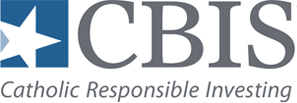What’s Next on a Random Walk Down Facebook Lane
by Francis G. Coleman, Executive Vice President, CBIS
Originally published by GreenMoney Journal
“Sometimes data behaves unethically…an algorithm that draws its lessons from the present reality can’t be counted on to improve the course of the future on its own.” – Antonio Garcia-Martinez, a former Facebook employee
We have officially entered the twilight zone.
As we have been speeding quickly along the information highway, enjoying our newfound access to information at breakneck speed and sometime encountering some speed bumps, never was it anticipated that humanity would get in the way.
The beauty of algorithms, as I have been told, is that they don’t think for themselves. They make the perfect decisions without all of the baggage that we humans have. No emotion…no conflicts of interest…no judgement…just pure rationality based on aggregated data analyzed over and over and over again…
At least that’s what we have been told. But we are now finding out, that in fact algorithms are not perfect. And if they are left on their own, we run the risk of them being outsmarted by really smart people who truly understood their failings and were able to exploit them. Do a search for “algorithms and humanity” and you get a plethora of headlines:
“Your Life is an Algorithm, Your Brain is an Operating System…”
“An algorithm can predict human behavior better than humans…”
“The Algorithm that will Save Humanity… or Destroy It…”
“Humanity and human judgment versus data-predictive modeling…”
And the recent and not so recent public criticisms of Facebook, from serving as a gathering point for hatred, to being used as a tool for the dissemination of information meant to undermine our democratic ideals and structures, are all part of the fabric of the same Facebook that has saved my relationships with many of my friends.
As a constantly traveling, “out of touch” individual who, in my limited contact with friends, was testing the limits of my friendships, I have been transformed into a fascinating traveler who is able to share parts of my life with his Facebook family, and now feels connected and present in his life.
Be careful what you ask for…
But the problems at Facebook and its cohorts are about much more than just an ethical lapse. It goes deeper than that.
Facebook, the ultimate connector of humanity, also had some very practical concerns to think about. The challenge was how to move it from the dorm room to the boardroom. How to create such value that people or institutions would be willing to pay for it. How to monetize a great connector of humanity, into a premier business?
That is the “genius” of Facebook and its ilk. With every posting and every emoji and every update that we post, we are giving clear and specific signals about ourselves. We are sharing our shopping choices, our musical tastes, our fears and joys. And in the background, sits this magical algorithm that gathers all this intelligence, processes it, and then “distributes” it to the hoards that are eager to sell things more efficiently. And Facebook is not alone in its use of this technology to make us more efficient targets for advertisers and marketers. There is a long line.
Its business model is built on the premise that algorithms are a cost effective way to sell its product, which is information about you and me. This reduces its implementations costs tremendously and increases its profits exponentially. Remove the human factor (labor costs) and you become a half a billion dollar company!
Facebook (sic) “never intended or anticipated this functionality being used this way–and that is on us.” – Sheryl Sandberg, Facebook COO in response to use of FaceBook for Anti-Semitic activity
And so what does all of this have to do with ESG?
Well, one can only wonder what would have happened if Facebook had only put some of its activity through an ESG lens. They might have been able to anticipate possible risks to the business model.
There are three lessons to be learned from the experiences at Facebook:
• First, Agnosticism Comes at a Price - We live in a values laden society. To presume that those values can be discounted and ignored and factored out of the algorithmic equation ignores the current reality of our society and world. It is still people who are using the platform and people are imperfect.
• Second, Human Sensitivities Trump Algorithms - It’s not clear to me whether it is ever possible or desirable to totally expunge human sensitivities from decision-making, especially for a company that operates across a spectrum of cultures and continents. Looking at data through a human lens can sometimes add perspective to the impact of an action.
• Third, Being the “Smartest Person in the Room” is Sometimes a Disadvantage - Well, it’s not just being the smartest person in the room that is the problem, it is when you know and act like the smartest person in the room and discount any other warning signals that emerge to suggest an alternative plan of action. A little dose of humility with those smarts might be the right mixture to not be tone deaf.
Read more from Frank on the Three Lessons as well as numerous useful solutions Facebook could employ - http://greenmoneyjournal.com/whats-next-on-a-random-walk-down-facebook-lane
=======



